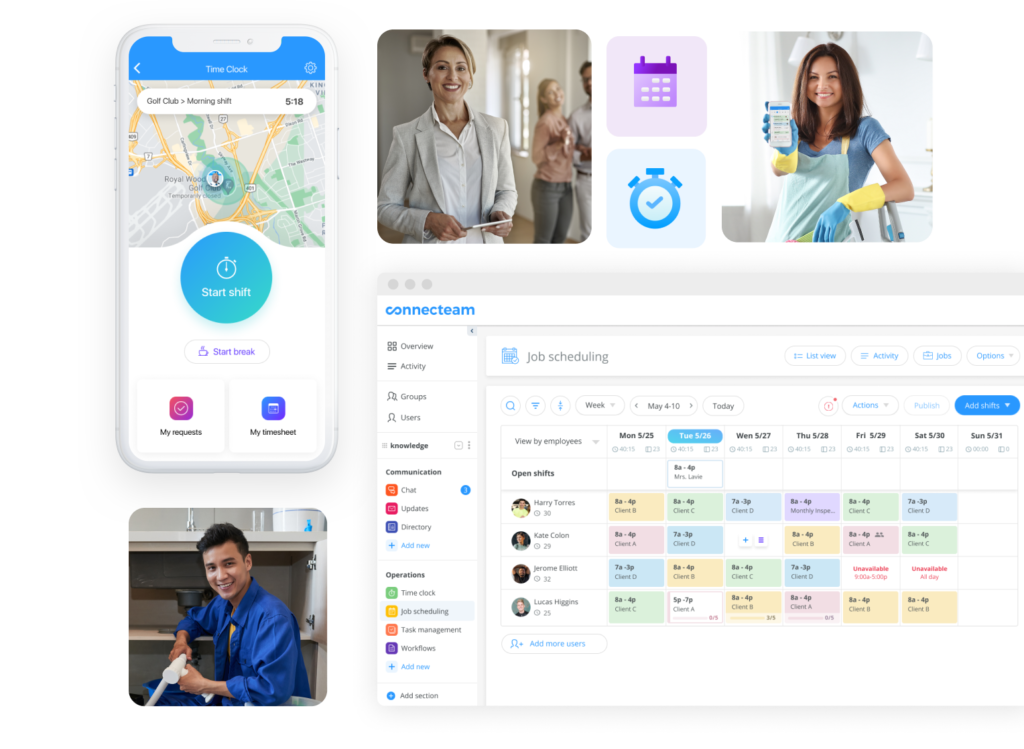Starting a rental company business can be overwhelming, not knowing where to start and what direction to go in. Here we’ll break it down for you in 10 easy steps. Follow these steps to learn how to start a property rental business, where to invest, and most importantly how to earn returns on your investments.
“Ninety percent of all millionaires become so through owning real estate. More money has been made in real estate than in all industrial investments combined. The wise young man or wage earner of today invests his money in real estate.”
Andrew Carnegie, billionaire industrialist
In this day in age what Andrew Carnegie still holds true. The rich became that way more often than not by owning real estate. Land is limited, so owning a piece of it will only increase in value over time.
Not everyone can afford to purchase a property, and that’s why so many people rent. Especially now when housing prices have skyrocketed, many people are looking to rent rather than buy, increasing the value of a rental property business.
The Benefits Of Starting A Rental Property Business
There are plenty of reasons why starting a rental property business is a wise move.
- Rental prices have increased by nearly 50% since 2008.
- The average rental for a 2 bedroom home in the US costs $1,100 monthly.
- The demand for rent is higher than ever – residential vacancy rates have decreased to 25% in 2019.
- In commercial real estate, the biggest emerging market is the industrial sector growing by 13.4% since 2020.
- Demand for industrial properties has increased, bringing the vacancy rate to an all-time low of 4.3%.
How to Start a Rental Property Business
Whether you’re looking to invest in the residential or commercial market, our 10-step guide will lead you in the right direction and help make your rental property business a glowing success.
First things first when starting any entrepreneurial endeavor: research. In a year from now you don’t want to look back and realize you bought a dud of a property or completely overstretched your financial capabilities. Thorough research will help you avoid many beginner mistakes that first-time rental property entrepreneurs make and set you up for success.
We laid out how to start a rental property business for you in 10 easy steps:
- Decide on your niche market
- Find your ideal location
- Understand the legalities of opening a business
- Secure financing
- Get a realistic idea of potential profits
- Find the property that’s right for you
- Find potential renters
- Screen tenants
- Collect rent
- Reinvest into your property maintenance
Decide On Your Niche Market
In order to decide on the niche that works for you, ask yourself some questions:
- What do I want my level of involvement to be in the day-to-day operations?
- To run this business, how far am I willing to commute each day?
- How much money do I need to make monthly for this to be a worthwhile investment?
- How often do I want to deal with finding new tenants?
- Will I be paying off the property in full or do I need a mortgage?
The two most influential factors to consider when choosing the right market for you:
- The type of property
- Level of involvement
Commercial vs. Residential
Commercial properties include large apartment complexes, commercial offices, industrial properties, and retail outlets to name a few.
Residential properties are single-family homes, condos, apartments, and townhouses. Single-family homes are the most common residential rentals.
Level of Involvement
How involved you want to be in daily operations will ultimately dictate which property type you should invest in.
Finding the right commercial property takes a lot of research and probably the use of a professional, but once you find the property, the day-to-day owner is not very involved in the building operations.
Let’s break residential properties into long-term (yearly leases) and short-term (vacation rentals).
Long-term rentals take a lot of time to find the right tenant and can have lower profit margins compared to short-term rentals, but once a tenant is found, the work is fairly passive.
Short-term rentals have the potential to make over double the rate of a long-term rental, but it requires, on average 10 hours a week of work. There are high maintenance costs and the income is not guaranteed.
Location, Location, Location
Location is one of the biggest reasons why businesses succeed or fail. If you open a hotel where there are no tourists, you are surely going to go bankrupt, just as if you open a burger restaurant between a Mcdonald’s and Burger King, you probably won’t be in business for very long either.
Depending on the type of property you’ve decided is right for you, you’ll have to look at all of the factors associated with the specific area you’re looking into.
For commercial properties, some factors to consider are:
- The ease of access to the property so employees and customers can easily arrive
- Abundance of parking available to the employees and customers
- Make sure of the zoning laws in the area to ensure you can do what you want with the property
- Check out the market trends in the area to determine if it will still be an ideal spot in 10 years from now
If you’re looking at residential properties, consider the following:
- The job market to make sure there will continually be people moving to the area
- School district ratings are critical if you are hoping to attract families
- Ensure the crime rate is low to protect your property but also to attract the right tenants
- Access to recreational activities for tenants, they are more drawn to places where there are things close by to do
- If future developments are underway and how long they will take to build, either increasing property value or decreasing depending on the development
- Vacancy rate in the neighborhood, if there is a high vacancy rate, you are sure to fall into the same category at some point
Your pool of tenants will vary greatly depending on the area your property is located. It’s a good idea to speak to people that live in the area you’re interested in. You can do this on apps such as Nextdoor or city Facebook groups, they can also tell you if any major changes are happening in the neighborhood.
It’s also important to note that a short-term rental will have better success in a touristy area.
Once you understand the type of investment you are looking for, it’s time to get specific about your plan and the tools needed to implement that plan.
Set up your business
Forming a legal business entity is needed to start a rental property business.
The main types of businesses are:
- Sole proprietorship
- Partnership
- Limited Liability Company (LLC)
- Corporation (C-corp and S-corp)
Consider, when deciding on the type of business you want to open, your personal liability and the tax structure.
Most rental property businesses are registered as LLCs because they cannot be personally held liable for anything that may go wrong.
As an LLC, you can file taxes any way you want, as long as you register the method you choose to pay taxes with the IRS. Speak to an accountant to decide on the right method for you.
Personal and business finances should be kept separate regardless of the type of entity. So whatever type of business you create, be sure to open a separate bank account to easily track business expenses and revenue. This will make filing taxes much easier.
Create a Business Plan
Most investors won’t even agree to a meeting unless you have a business plan set up. Once you have the registered business, you can create a plan to get that business up and running as soon as possible.
A traditional business plan should be written in the following way:
- Executive summary – Explain briefly what your company does and why you will be successful. Include the basics of your business; your team, location, financials, and growth plan.
- Company description – Go more into detail regarding who your target market is and what gives you the competitive advantage.
- Market analysis – Get a good grasp of the real estate and rental market. Show you know what others are charging for rent, which cities are booming, and how they get their renters.
- Organization and management – If you have a team, this is where to explain who does what and why they are qualified to do so. This is also where you talk about the legal structure of the business.
- Service or product line – Describe what type of rentals you offer and include some specific locations you are looking into. Explain why these are prime opportunities.
- Marketing and sales – Include your marketing strategy. How will you advertise your available properties? How you will get tenants, and what is the process to actually sign a contract with a tenant?
- Funding request – If you are asking for money from an investor, you will need to outline how much you need and exactly how it will be spent. Specify the terms you are looking for if you want to take on debt (bank loan) or give away equity (private investors).
- Financial projections – Explain how you plan to make back the money, your projected expenses, and your revenue. Include a 5-year and 10-year outlook.
- Appendix with supporting documents – Be sure to include all research and documentation backing up any claims you make in the previous sections.
You can see a more detailed approach to formulating a business plan by checking out our template here.
Financing
Buying property is not a cheap investment. The median sale price of a single-family home was $346,900 in 2021. The median price of an apartment complex was $11 million. So as you can see there is a huge range in the cost of starting a rental property business.
Generally, with these costs, financing is necessary. Once you know the type of entity you want to open, you can look into different financing options available.
There are two main ways to finance a property; private investors or a bank loan.
Private Investors
Private investors generally want a share of the property equity, meaning it’s not just a loan that you pay back, but you will split profits with them forever. This limits your profit potential, but the investor will be invested in the success of your business, meaning they will help you succeed in any way they can.
The upside to private investors is that you don’t need a proven credit history. They’re more concerned with what you can do in the future versus what you’ve done in the past.
Finding an investor is not easy. You can try to use connections through friends and family or even social media, but there is no guarantee you will find an interested investor.
Bank Loan
Standardized institutions, specifically commercial banks, will want to ensure you’re able to make your monthly loan payments, meaning it can take a long time to process paperwork and check your personal finances. Banks also might require collateral in the case of your business failing, in the case of a mortgage, the collateral is often times the property itself.
Securing funds from a bank can be a lengthy process, but the interest rates are secured. Once you are approved for a loan, you will know exactly how much you need to pay back and by what date.
There are also tax benefits to certain types of loans. You can research the types of loans and tax incentives available in your area.
Understanding your finances will greatly impact the properties you are able to purchase. You should be aware of the amount you are able to secure prior to looking at specific properties to determine what you are able to afford.
Look Into Specific Properties
Once you know your budget and the area you want to purchase in, you can begin looking at potential properties.
Searching for the perfect property can be a daunting task. If you decide to search yourself for a property, you can check out real estate websites like Realtor. However, real estate agents usually have more access to properties that aren’t listed online.
Real estate agents can also help you negotiate for properties listed higher than your budget. Once an offer has been accepted, the agent will guide you through the home inspection.
Before you make the leap and buy the property, make sure the investment makes sense financially.
Profits
Estimated profits are fairly easy to calculate once you have all the relevant information. Profits are calculated by subtracting total expenses from total revenue.
Total expenses are everything it will cost you to run this business.
These expenses consist of:
- The property purchase price (the down payment, monthly mortgage, and the interest rate on the loan)
- Property taxes
- Landlord insurance
- Operating expenses (maintenance and cleaning fees)
- Business taxes (income or corporate taxes)
Total revenue is how much money is coming into the business. This would be the amount of rent you are able to collect.
Find out the rental prices of comparable properties in the neighborhood. Understand how much you will be paying in property and business-related taxes as well as landlord insurance. Once you have all of these estimates you can calculate the projected profits and see if this is a good investment for you.
Decide how much money you need to make to determine if it’s worth starting a rental property business. Single-family properties see an average yearly return of 1%-4% of the purchase price whereas commercial properties see an average yearly return of 6%-12%.
In addition to the revenue you will receive from rent payments, you will also gain on the value of the real estate itself. Over the last 10 years, housing prices have increased by 48.55%, and in this economy it’s likely to see the same increase over the next decade.
Marketing Your Property
Getting the word out that your property is now available to rent is vital.
How will people know that your property is available?
- Posting on a rental website with a significant amount of traffic (for short-term rentals, post on sites like VRBO and Airbnb)
- List your property on social media (for example Facebook Marketplace rental section)
- Word of mouth through realtors and friends
- “For Rent” signage on the property
Once people know about your property, the rental applications will start rolling in.
Screening Tenants
Now that the potential tenants have applied, you will need to screen them to make sure they’re a good fit.
A good fit is someone who, at the bare minimum, has:
- A clear eviction history
- A reasonable income to afford rent
- A good credit history
A great tenant is someone who has the above, and;
- Has reliable sources vouching for them
- Takes care of the property
- Stays long term
- Lives below their means and is never late with their payments
- Doesn’t have pets, or is willing to cover the costs of any pet damages
Airbnb and similar short-term rental websites require users to submit identification documents prior to booking, so this is not something that you will have to do.
For all long-term rentals, you will have to screen them yourself or find a company that can do it for you.
Rent Collection
Now that you’ve found a tenant to rent your property, you’ll need to collect rent from them.
With short-term rentals, payment is done before the stay. However, if you’re renting long-term, you’ll need to collect rent monthly.
Online payments are by far the most used type of payment method. Tenants can set up automatic rent payments, and with 49% of renters being under 30 years old, this is the easiest way for them to pay.
Maintenance and Repairs
With commercial properties, the contract signed determines who is responsible for repairs. However, generally, the tenants are responsible for maintenance.
Residential properties have very strict government regulations ensuring that the property is liveable.
A habitable living situation includes:
- No leaks
- Working plumbing, gas, and electricity
- Sanitary building and grounds with adequate trash receptacles
- Floors, stairways, and railings are in good repair
That being said, long-term residential tenants will likely only reach out to you if something happens that affects their quality of life. For example, if the air conditioner breaks in the house, you, the landlord, will be responsible for fixing it, unless of course, they did something to cause it to break.
Short-term tenants are much more work. The properties need to follow government regulations (which vary by city) and in addition, the property will require cleaning between each stay. Certain amenities are also expected from short-term tenants that need to be replenished.
Amenities short-term tenants expect:
- Shampoo and conditioner
- Clean dishes and silverware
- Fresh towels and linens
- Basic food staples like salt and pepper
- Cleaning supplies
- Toilet paper and paper towels
If you are inspecting the property after each stay, you can see if there is anything broken that needs to be fixed or if you are running low on amenities.
However, if you would like to have a more hands-off approach, you can hire a trustworthy cleaning service to act as a property manager or a property management company.
Property managers, on average, charge 10% of the monthly rent collected. This is a hefty price to pay in some cases but well worth it for those that want little to no involvement in the day-to-day operations.
Take Your Rental Property Business To The Next Level By Going Digital
Scheduling all of the cleaners and maintenance crew can be daunting, especially once you have multiple properties. Easily monitor their hours and assign tasks using a digital solution with real-time updates.

With an all-in-one rental property business management solution like Connecteam, you can:
- Easily schedule employees to specific properties
- Employees can clock in and out with geotracking (link to an in-depth review)
- Employees can use checklists to go through daily tasks
- Every action will be reported back to you in real-time
Click here to learn more about how Connecteam can help you manage your business.
The #1 App To Run Your Rental Property Business
The Bottom Line On Starting a Rental Property Business
Now that you’ve done all of your research and know what it takes to successfully start a rental property business, you can begin! It might seem like a lot, but once broken down step by step, you can do it!
We laid out how to start a rental property business for you in 10 easy steps:
- Decide on your niche market
- Find your ideal location
- Understand the legalities of opening a business
- Secure financing
- Get a realistic idea of potential profits
- Find the property that’s right for you
- Find potential renters
- Screen tenants
- Collect rent
- Reinvest into your property maintenance
If you’d like help operating your business, check out Connecteam’s all-in-one app for managing small businesses.


